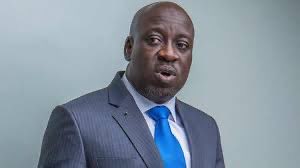The African Democratic Congress (ADC), positioning itself as a formidable opposition force against President Bola Tinubu in the upcoming 2027 general elections, has revealed a significant hurdle in its coalition-building efforts: the reluctance of state governors to join their ranks due to alleged intimidation. This revelation, made by the party’s interim National Publicity Secretary, Bolaji Abdullahi, paints a picture of a political landscape fraught with pressure tactics, potentially stifling the growth of a unified opposition front. Abdullahi characterized these alleged acts of intimidation as a conspiracy against the Nigerian people, highlighting the gravity of the situation and its potential implications for democratic processes.
The ADC’s formation as a unified opposition platform was a significant political development, bringing together prominent figures from various parties, including former Vice President Atiku Abubakar, Labour Party’s Peter Obi, and former APC aspirant Rotimi Amaechi. Despite this initial momentum and the appointment of seasoned politicians like David Mark and Rauf Aregbesola to leadership positions, the party has struggled to attract sitting governors. This absence of gubernatorial support, according to Abdullahi, stems from fear and a calculated strategy by some governors to align with President Tinubu as a shield against potential repercussions. This dynamic raises concerns about the fairness and transparency of the political playing field, potentially undermining the ability of opposition parties to effectively challenge the ruling power.
Abdullahi’s statement sheds light on the delicate balancing act faced by governors caught between the allure of a unified opposition and the potential consequences of defying the ruling party. He acknowledged that some governors, unwilling or unable to defect to the ruling All Progressives Congress (APC), have opted for a public endorsement of President Tinubu’s candidacy as a means of appeasement. This tactic, while seemingly a compromise, further reinforces the narrative of intimidation and underscores the challenges faced by the opposition in attracting high-profile political figures. The ADC, however, remains resolute in its mission, viewing itself as a movement backed by a majority of Nigerians disillusioned with the current political trajectory.
The ADC’s leadership is adamant that the party will not be hijacked by individual ambitions or become a vehicle for personal political agendas. Abdullahi emphasized the party’s commitment to a different kind of politics, one focused on building a strong and independent platform rather than serving pre-determined candidates or agendas. This assurance aims to allay concerns about the party’s long-term direction and its ability to remain true to its founding principles. The absence of discussions regarding a potential flag bearer for the 2027 elections further underscores this commitment, indicating that the party’s current priority is strengthening its foundation and broadening its reach rather than prematurely focusing on individual candidacies.
The party’s strategy focuses on grassroots mobilization and addressing regional concerns. The National Political Consultative Group’s meeting in the North, dedicated to addressing issues such as insecurity and regional unity, is a prime example of this approach. Similar meetings are planned for other regions, demonstrating the ADC’s commitment to understanding and responding to the diverse needs of the Nigerian populace. This focus on regional issues allows the party to connect with local communities, build trust, and establish a presence beyond the national political stage. By addressing specific challenges faced by different regions, the ADC aims to position itself as a party truly representative of the Nigerian people.
The ADC’s path to becoming a viable alternative to the ruling party is undeniably fraught with challenges, from alleged intimidation tactics to the complexities of building a broad-based coalition. Despite these hurdles, the party remains steadfast in its mission to offer a different political trajectory for Nigeria. Its emphasis on grassroots engagement, regional focus, and a commitment to resist individual ambitions sets it apart from traditional political dynamics. The ultimate success of the ADC, however, hinges on its ability to navigate these challenges, build public trust, and convince a significant portion of the electorate, including hesitant governors, that it represents a credible and viable alternative to the status quo. The 2027 elections will be a crucial test of the party’s resilience and its ability to transform its vision into a tangible political force.


